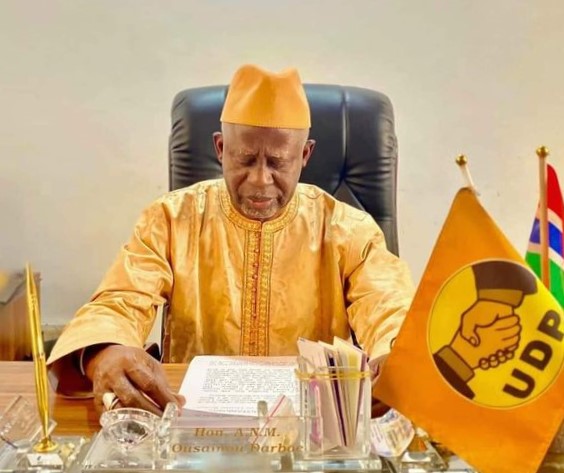By: The Fatu Network Editorial
The Supreme Court of The Gambia has dismissed a consolidated lawsuit challenging the appointment of six presidential advisers who simultaneously hold positions in political parties. This ruling came after combining six separate cases that shared common facts and legal issues.
In a judgment delivered on December 12, 2024, Chief Justice Hassan B. Jallow, writing for the majority, ruled that “the restriction on holding of office in a political party imposed by Section 170(1) of the Constitution which is limited by the said Section to public servants i.e. civil servants and others so declared to be pursuant to Section 166(1) of the Constitution does not apply to the 1st defendants as they are appointees of the President pursuant to Section 80 of the Constitution.”
The case, brought by Ebrima Dibba and the United Democratic Party, had sought to invalidate the appointments of six Special Advisers to the President, including Dembo Bojang, Lamin Cham, Dodou Sanneh, Henry Gomez, Lamin K. Saidy, and Sulayman Camara. The Court confirmed these advisers held various party positions: Dembo Bojang as National President of both UDP and later NPP, Dodou Sanno as National Organising Secretary of NPP, Henry Gomez as Leader of GPDP, Lamin K. Saidy as Deputy National Youth Coordinator of NPP, Sulayman Camara as Secretary for Media and Communication of NPP, and Lamin Cham as National Campaign Manager of NPP.
The Court made a crucial distinction between “public office” and “public service,” determining that while presidential advisers are public officers, they are not public servants and therefore not subject to the same political neutrality requirements as civil servants. In the case of Sulayman Camara, the Court noted his unique position as a pro bono adviser on cyber security, questioning whether he even qualified as a public officer since he received no payment for his services.
The judgment was delivered with four justices in agreement, following the passing of Justice M.M Sey, who had participated in the hearing and conference but died before the judgment was delivered. The Court ordered no costs in the matter.




